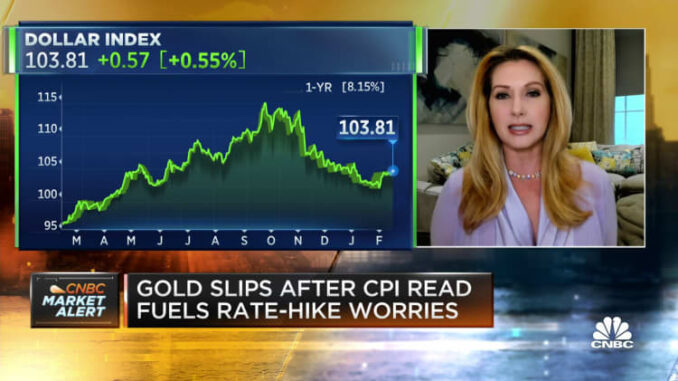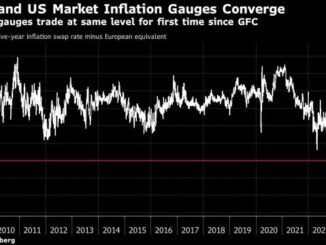
Stocks struggled for direction Wednesday as traders mulled a stronger-than-expected retail sales along with the latest U.S. inflation data.
The Dow Jones Industrial Average lost 39 points, or 0.11%, recovering nearly all losses from earlier in the session.
The S&P 500 rebounded to trade just 0.09% higher, lifted by shares of SolarEdge and Generac, which gained more than 8% and 7%, respectively.
The Nasdaq Composite rose 0.72%, boosted by shares of Airbnb, which surged 14% after beating earnings expectations. Gains in Tesla, Rivian and Lucid also helped lead the index higher.
January retail sales rose 3%, while economists polled by Dow Jones anticipated a 1.9% increase.
The number signals that the U.S. economy is holding up despite increased rate hikes by the Federal Reserve to tame inflation.
“The labor market’s resilience is the main reason consumers continue to spend and as long as that’s the case, inflation is likely to remain sticky,” said Chris Zaccarelli, chief investment officer for Independent Advisor Alliance in a Wednesday note.
“The Fed is going to need to raise rates higher – and hold them higher for longer – than people currently expect and this is going to cause markets to go through some significant volatility as stock and bond markets are priced for benign scenarios and not the more difficult one that we are headed towards.”
Wednesday’s retail sales data comes a day after the latest U.S. inflation report was released.
The January consumer price index report came slightly above economists’ estimates, indicating a potentially longer path in the Federal Reserve’s fight against rising prices.
Later in the week, traders will be listening to speeches from Federal Reserve officials for any signs of what the central bank may do at its next meeting in March.
Investors will also continue to watch earnings results. Zillow, Shopify and DoorDash are some of the companies schedule to report this week.
Roughly three-quarters of S&P 500 companies have posted their latest results.
Of those companies, 69% have beaten earnings expectations. That beat rate is below a three-year average of 79%, according to data from The Earnings Scout.
Source: www.cnbc.com



